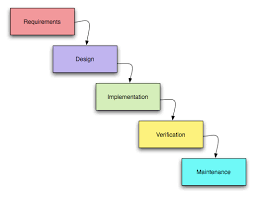The Importance of Customized Application Software
In today’s digital age, businesses are constantly seeking ways to streamline their operations and improve efficiency. One way to achieve this is through the use of customized application software. Customized applications are tailored specifically to meet the unique needs and requirements of a business, providing a more efficient and effective solution compared to off-the-shelf software.
One of the key advantages of customized application software is its ability to address specific business challenges. Off-the-shelf software may not always align perfectly with the processes and workflows of a particular business, leading to inefficiencies and limitations. Customized applications, on the other hand, can be designed to fit seamlessly into existing systems and workflows, maximizing productivity and performance.
Another benefit of customized application software is its scalability. As businesses grow and evolve, their software needs may change as well. Customized applications can easily be adapted and expanded to accommodate new requirements, ensuring that they remain relevant and effective in the long term.
Security is also a major concern for businesses when it comes to software applications. Customized applications offer greater control over security measures, allowing businesses to implement robust security protocols tailored to their specific needs. This can help protect sensitive data and prevent potential security breaches.
Overall, customized application software offers businesses a tailor-made solution that can help improve efficiency, productivity, scalability, and security. By investing in customized applications, businesses can gain a competitive edge in today’s fast-paced digital landscape.
Six Essential Strategies for Developing Effective Customized Application Software
- Clearly define the requirements and objectives of the customized application software.
- Involve end-users in the design and development process to ensure usability and functionality meet their needs.
- Regularly test the customized application software for bugs, errors, and performance issues.
- Provide adequate training and support to users to facilitate smooth adoption of the customized application software.
- Implement robust security measures to protect sensitive data stored or processed by the customized application software.
- Future-proof” the customized application software by designing it with scalability and flexibility in mind for future updates and enhancements.
Clearly define the requirements and objectives of the customized application software.
To ensure the success of customized application software, it is crucial to clearly define the requirements and objectives of the project right from the start. By establishing a clear understanding of what the software needs to achieve and how it will meet specific business needs, stakeholders can align their expectations and goals. This step not only helps in creating a roadmap for development but also ensures that the final product meets the desired outcomes effectively. Clear definition of requirements and objectives sets the foundation for a successful customized application software that is tailored to address specific business challenges and drive operational efficiency.
Involve end-users in the design and development process to ensure usability and functionality meet their needs.
To maximize the effectiveness of customized application software, it is crucial to involve end-users in the design and development process. By soliciting feedback and input from those who will be using the software, developers can ensure that the final product meets the specific needs and preferences of the end-users. This collaborative approach not only enhances usability but also ensures that the functionality of the software aligns with the daily tasks and workflows of the end-users, ultimately leading to a more successful implementation and user satisfaction.
Regularly test the customized application software for bugs, errors, and performance issues.
Regularly testing customized application software for bugs, errors, and performance issues is crucial to ensure its effectiveness and reliability. By conducting thorough testing procedures on a consistent basis, businesses can identify and address any potential issues before they impact operations. This proactive approach not only helps maintain the quality of the software but also enhances user experience and overall efficiency. Testing allows for continuous improvement and optimization of the customized application software, ultimately leading to better performance and long-term success for the business.
Provide adequate training and support to users to facilitate smooth adoption of the customized application software.
To ensure the successful implementation of customized application software, it is crucial to provide adequate training and support to users. By offering comprehensive training programs and ongoing support, businesses can facilitate a smooth adoption process for their employees. This not only helps users become familiar with the new software but also boosts their confidence in using it effectively. Proper training and support can lead to increased productivity, reduced errors, and overall improved user satisfaction with the customized application software.
Implement robust security measures to protect sensitive data stored or processed by the customized application software.
It is crucial to implement robust security measures to safeguard sensitive data stored or processed by customized application software. By prioritizing security, businesses can mitigate the risk of data breaches and unauthorized access, ensuring that confidential information remains protected. Implementing encryption, access controls, regular security audits, and monitoring systems can help fortify the defense mechanisms of customized applications, ultimately enhancing data protection and maintaining trust with customers and stakeholders.
Future-proof” the customized application software by designing it with scalability and flexibility in mind for future updates and enhancements.
To ensure that your customized application software remains relevant and effective in the long term, it is crucial to “future-proof” it by designing with scalability and flexibility in mind for future updates and enhancements. By incorporating features that allow for easy expansion and adaptation, you can ensure that your software will be able to evolve along with your business needs. This proactive approach not only saves time and resources in the long run but also ensures that your customized application remains a valuable asset that can grow and adapt to meet future challenges and opportunities.



